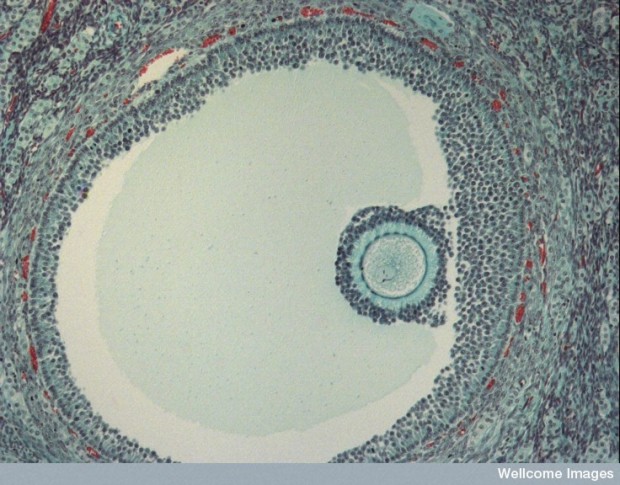By Elaine Korry, KQED

A bill awaiting Gov. Brown's signature would end a decade-old disparity in California law regarding egg donation. Under current law, it is legal to pay a woman who provides her eggs, called oocytes, to a couple going through in-vitro fertilization. But there is a ban on paying the same woman for the same eggs if they are to be used in medical research.
AB 926, a bill by Assemblywoman Susan A. Bonilla (D-Concord), would lift that ban on payment for research oocytes. Bonilla said the bill will create equity in the field of medical research compensation. "This is the only research procedure that does not compensate," said Bonilla. "As a result of that, a lot of very important research, particularly around women's fertility, just has not taken place here in California."
Fertility research resulted in cancer survivor Alice Crisci holding on to her dream of motherhood. Crisci's "miracle boy," as she calls him, is due Oct. 4, five years after she was diagnosed with breast cancer. At age 31, facing chemotherapy, Crisci had her own eggs preserved. She underwent ovarian stimulation, which involved weeks of hormone injections -- to increase the number of follicles she produced -- followed by a procedure to retrieve the eggs.
But without an economic incentive, few women have lined up to donate their eggs to science. "We certainly do not attract funding to our state for this type of research because without compensation it has been amply proven that we will not be able to recruit donors," said Crisci.